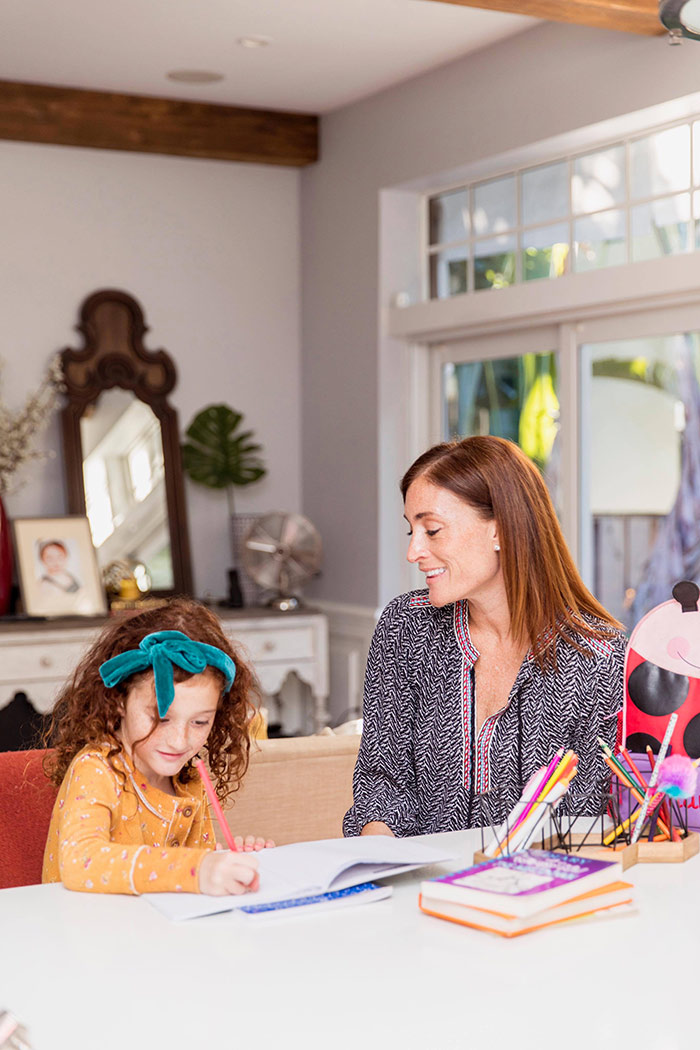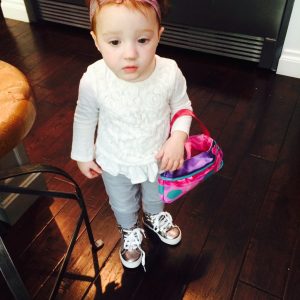
Coming Into Focus – Helping a Child With a Learning Disability Succeed
Like many children with learning differences, I was never formally diagnosed with dyslexia. However, I struggled with the same reading difficulties and processing issues for many years. As someone who dealt with a learning difference as a child, I have always felt my greatest lessons were in learning to succeed and persevere despite my differences. I now look back on what I thought was my weakness while growing up and realize it was actually my biggest strength. Although I absorbed information differently, my learning difference didn’t mean I would never be successful. At a young age, I learned the importance of working hard and having determination.
Now, as a pediatrician, one of the most important parts of my job is to provide my parents with knowledge. The knowledge of what illness their child has, the knowledge of what to expect with their child’s illness or condition, and the tools to help overcome and heal their child’s symptoms.
I truly believe that knowledge is power. And with the right resources and education, we become less fearful and more empowered to take on the obstacles ahead of us. It is no different when a parent comes to me with a concern that their child has a learning difference.
The Learning Difference Experience
In the United States, 1 in 5 kids has a learning or thinking difference, like dyslexia and dyspraxia or ADHD and reading problems. And 1 in 4 people has some type of disability, which may ultimately affect academic, social, or emotional abilities.
As a parent, there is nothing more disheartening than feeling like your child is struggling.
When your child’s teacher approaches you or you notice your child is struggling with specific learning difficulties, you will likely fear your child is different or fear they won’t have the right tools to succeed. It is so easy to become overwhelmed and intimidated.
Many parents don’t even know where to begin.
3 Tools to Succeed with a Learning Difference
First, start by taking a deep breath. Every child truly is different.
It is our main job as parents to empower our children with their strengths while supporting them through their weaknesses.
And like I said before, knowledge really is power, especially when trying to advocate for your child.
So today, I want to break down some easy steps and give you some amazing resources to help guide you through the challenges a learning disability may present for your child.
1. Discover and Explore Your Child’s Differences
As a parent it can be hard distinguishing whether your child’s behavior is just a phase or has become a pattern. Is it something that needs to be further investigated?
“My child is having a stressful month.”
“He is dealing with a lot of transitions.”
“He is just a toddler.”
Never underestimate your intuition as a parent or be scared to reach out for help.
During this time, reach out to your child’s teacher. Together, write down the patterns you observe and possible triggers for your child’s behaviors. There are many different types of learning disabilities, and pinpointing your child’s specific learning difficulties is key. Open communication with your teacher is imperative in trying to help your child through these struggles. Many times, you can identify and eliminate a stressor, which can significantly help your child thrive.
If your child is struggling or having differences in the classroom, don’t be scared to reach out and get your child the right support and help. With so many different types of learning disorders, getting the right support for your child is vital.
But a common concern for many parents in this situation is whether their child will be labeled. A big hurdle parents have to overcome is whether a learning difference will change the course of their child’s academic, social, or emotional journey. Will there be a stigma regarding the difference?
But with the right support and guidance early on, your child can succeed with their learning differences and even achieve greatness.
If your child’s behavior or difference affects their ability to function in the classroom in any way, it’s important to reach out to your teacher and your pediatrician for further help.
Not all children will get a formal diagnosis. But there are so many resources out there, like Understood.org, to help you along your journey.
2. Celebrate and Highlight Your Child’s Strengths
As parents, we all seek that perfect equation to help our children achieve ultimate success and fulfillment in life. But the truth is there’s no magic solution.
Each child is unique, and it is important for us to bring out the best in each child. Show them they can achieve success in many different ways.
Explore your child’s interests. Find what they love – the things that make them feel passionate and happy – and foster those skills.
Whether your child loves playing the flute or kicking a soccer ball, there are so many important life lessons in extracurricular activities. Sometimes when our children are faced with learning differences, their confidence and self-image take a hit. Giving these children an outlet to feel successful and empowered is as important as helping them navigate their weaknesses.
Children succeed in different areas and subjects. Some do great in math but struggle in reading. It is our job as parents to teach our children that differences make us special.
Our strengths can be other people’s weaknesses, and our weaknesses can be other people’s strengths.
People with different strengths make for great teams. We all have different talents and are able to contribute to society in a variety of ways.
3. Build a Community
1 in 5 children suffer from learning differences.
The school environment can often feel like it’s structured for children without academic struggles. But there are resources available to help children with learning differences succeed.
Surround yourself with the right people. Connect with the right people. And lean on the shoulders of those who have been through similar obstacles.
There may be many people in your inner circle who have experienced similar situations and can be of great support to you.
And Understood.org has served millions of families with kids who learn and think differently. This site provides programs for families and educators. Resources for young adults will be released in late 2020, as well. They offer customized, accessible resources and a compassionate community of people all working toward the same goal of helping those with learning differences reach their goals.
Final Thoughts on Achieving Success With a Learning Difference
I think one of the greatest gifts we can give our children is found in the teachable moments we create – moments that allow us to share lessons to help them succeed in life. These teachable moments can come in their successes but also in their failures. It can come in their strengths but also in their weaknesses.
The mission of Understood.org is about “Shaping the World for Difference.” Providing information, helpful resources, and supportive communities are the keys to giving people who learn and think differently a greater ability and opportunity to thrive.
As parents, it is NOT our job to solve our children’s problems for them. But we do need to give them the right tools to solve their own problems.
Every child is different. And that’s awesome! Because, let’s be honest, differences make the world worth exploring!
Differences are often our greatest strengths.
Differences are our superpowers.
~Dr. Katie







